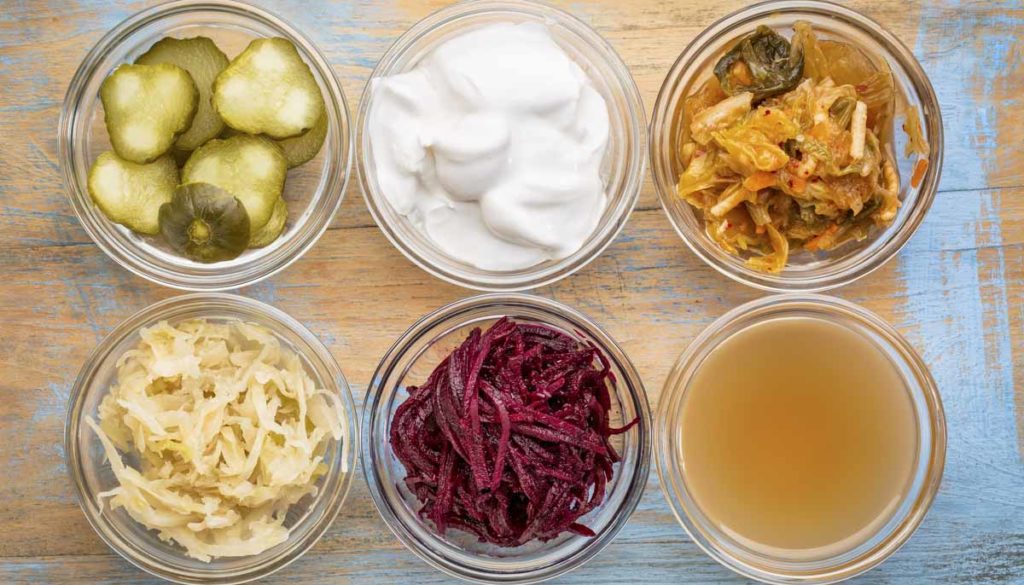Shutterstock
You might have read a few articles about probiotics and their supposed health benefits. Is any of that true, though? Is drinking kombucha and eating sauerkraut really that good for you?
Let’s take a closer look at the science behind probiotics to get a better sense of whether they’re as good for you as some people say.

The term “probiotics” refers to microorganisms that are intended for consumption with the goal of increasing your overall health by promoting the growth of your gut flora. If you’re not familiar with gut flora, we’ll go over the basics.
Your gut flora is all the helpful little microorganisms, like friendly bacteria, that live in your intestinal tract. They’re supposed to be there, and they help you break down all of your favorite foods. The presence of these gut flora is vital for a healthy digestive system!
The purported health benefits of probiotics are still the topic of scientific testing. While probiotics are quite safe for human consumption, they have not been proven to directly impact health in any clinical trials. In some rare cases, probiotics can even cause harmful bacteria in the intestines to grow as an unintended side effect.
However, just because there is a lack of definitive clinical testing doesn’t mean that probiotics don’t have proven health benefits. Probiotics are likely quite good for you, since healthy gut flora are important for a healthy digestive system.
While we wouldn’t recommend eating nothing but yogurt and kimchi, getting a good amount of probiotics in your diet is probably isn’t a bad idea.
Nearly all fermented foods contain probiotics. This includes any fermented dairy products, kefir, yogurts, and various buttermilks. Kombucha usually includes lactic-acid bacteria, as does any “probiotic fortified” foods that have lactic-acid bacteria seeded into them in a laboratory setting.
Soy products like tempeh, soy sauce and miso are also known to contain probiotics. Additionally, pickled vegetables, sauerkraut, kimchi and pao chai are all common sources of probiotics in some healthy diets.
Remember, if you have any intestinal disorders or diseases, speak to your doctor before ingesting probiotics: gut microflora manipulation is complex, and improper use of probiotics or antibiotics can upset the balance in your intestines.